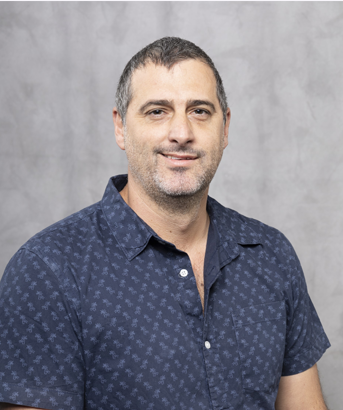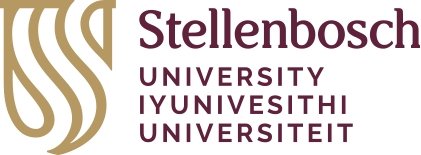
- This event has passed.
Prof Francois Roets
June 8, 2023 @ 17:3018:30


Life took over the globe through combat and networking
The intricate ways in which all organisms in the natural world interact with one another to make the machinery of life work properly have long fascinated scientists. These interactions, or symbioses, between organisms are often a major driving force in the evolution of life on earth.
Just imagine the way in which plants evolved elaborate arrangements of modified leaves (or flowers) for the sole purpose of attracting animals for their own reproduction – a process we call pollination. In this interaction, both the plant and the pollinator benefit. However, organisms can also interact in detrimental ways. Some microbes can kill their hosts, although this helps regulate the population numbers of nearly all organisms on earth. These symbioses, both good and bad, exist in all ecosystems, from the large reserves to the confines of your backyard, and even within your own body. No organism exists in isolation.
At the Department of Conservation Ecology and Entomology of Stellenbosch University, the Diversity and Symbiosis Research Group, headed by Prof Francois Roets, focuses on the diversity and interactions of fungi, plants and arthropods in South Africa’s Cape Floristic Region. The group has been involved in the discovery and description of more than 50 new species of fungi, ten new plant species, and about ten arthropod species. Many of these new fungi were previously unknown pathogens of plants in South Africa, and some of the new arthropods are dung beetles that help clean environments.
However, most work focuses on unravelling the mysteries of how organisms interact with one another and their environment, and how they can co-exist. One of these systems involves the interactions between fungi, mites, insects, birds and bacteria in the fruiting structures of Protea, the plant genus that contains South Africa’s national flower, the King Protea. These fruiting structures, or ‘cones’, can be viewed as mini-ecosystems and are seen as an ideal testing ground for ideas on community ecology. Among others, the research group has described how fungi that live in these cones have evolved special spores and specialised associations with mites to help them disperse from one habitat to the next, using insects and even birds at ‘taxis’.
One of the more recent discoveries involves a fungus that has found a way to sterilise its host plant and induce this host to produce fungal spores (the ‘seeds’ of the fungus) instead of the usual pollen grains. This camouflage system is so perfect that bees, which are the plant’s normal pollinators, cannot tell the difference between flowers that contain pollen and those that contain fungal spores. In this ingenious system, therefore, the fungus hijacks the plant’s reproductive system and uses its usual pollinators to spread infective spores from diseased plants to healthy ones.
While these natural systems help maintain normal functions in healthy ecosystems, anthropogenic influences may alter symbioses in dramatic and catastrophic ways. Some fungi have evolved close associations with beetles that chew tunnels into the wood of trees. The fungus serves as the food of the beetle and its larvae and may help weaken trees for more beetles to colonise; in turn, though, the fungus uses the same beetle to spread between different trees. When environmental conditions change, or when these organisms are taken to new environments, millions of trees may be killed. One of these destructive beetles, the polyphagous shot hole borer beetle (PSHB), recently reached South African shores, with disastrous consequences for urban forests, native forests and agriculture. Therefore, a major current thrust of the Diversity and Symbiosis Research Group is to understand the biology and ecology of this invasion in order to find the best management solutions.
WATCH THE INAUGURAL LECTURE HERE
Short biography
After completing his PhD studies in the Department of Botany and Zoology at Stellenbosch University (SU) in 2006, Prof Francois Roets entered the academic arena as a postdoctoral fellow of the Forestry and Agricultural Biotechnology Institute (FABI) at the University of Pretoria. Two years later, he accepted a lecturing position in SU’s Department of Conservation Ecology and Entomology, and in 2021, became departmental chair. He has also served as a core team member of the prestigious DSI/NRF Centre of Excellence in Tree Health Biotechnology (CTHB) since 2008.
Prof Roets teaches and supervises students in the broader fields of microbiology, entomology and botany, focusing on the biology, ecology, systematics and conservation of inter-organism interactions. As studies on multiple organism interactions are multidisciplinary, his research repertoire includes diverse fields such as biodiversity research, ecological experimentation, landscape ecology, molecular phylogenetics, genomics, population genetics, systematics, taxonomy, and metagenomics. These research activities rely on strong collaboration with other institutions, both locally (including the Agricultural Research Council, Hortgro, Winetech, the South African National Biodiversity Institute, and the universities of Pretoria, Cape Town and the Free State) and abroad (including the prestigious Fungal Biodiversity Centre in the Netherlands, Ruhr-Universität Bochum in Germany, the Canadian Forestry Services, Charles University in Prague, and the University of Florida in the United States).
Prof Roets has been an invited speaker at five scientific meetings, delivered presentations at over 30 public and industry engagements, participated in 13 radio interviews, and made five television appearances. He has supervised and co-supervised 28 MSc and 15 PhD students, and his publication record includes 143 papers in peer-reviewed scientific journals, one book chapter, seven technical reports, and 11 popular articles. Work conducted by his research group has been the topic of 44 popular news items. In addition, along with his students, he has presented more than 100 papers and posters at more than 40 scientific meetings across South Africa and abroad, which appeared in 18 conference proceedings. He has reviewed papers for some 25 scientific journals and currently serves as editor-in-chief of African Entomology. Prof Roets’s work has earned him SU’s research excellence awards each year from 2013 to 2016, in 2018, and again in 2022.

Recent Comments